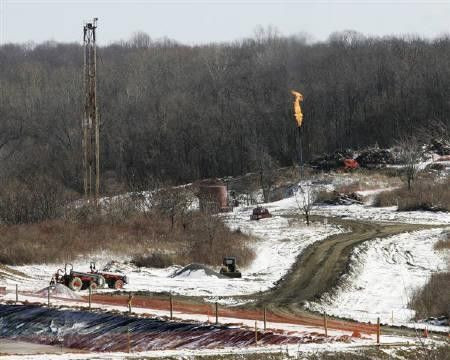Oil-Gas Trade Group Urges N.Y. to Permit Hydraulic Fracturing

The nation's top energy industry trade group urged New York officials Wednesday to permit a controversial practice of extracting natural gas or crude oil from deep beneath some of the state's most pristine areas.
The American Petroleum Institute called on New York policy-makers to permit the practice, citing the industry's track record on pollution control and the benefits of permitting hydraulic fracturing within horizontal wells. The API called for responsible development of oil and natural gas and job creation in the state.
New York currently has a de facto moratorium on the practice of hydraulic fracturing (or fracking) within horizontal wells, a technique that some say can pollute drinking water with toxic substances.
The prohibition held for as long as the state's Department of Environmental Protection kept its proposed industry regulations open for public comment.
New York imposed a three-year moratorium in place in 2008. It was lifted in the summer of 2011, but no drilling or well permits were granted. Now that the public comment period on the DEP's regulations is closed, the agency could allow horizontal drilling.
Ending the moratorium would allow New York to lead the way in the responsible development of shale oil and natural gas energy and fully attain the job creation potential of the Marcellus Shale, said API Executive Director Michael Doyle.
The API's statement comes on the day that public comment ends on the DEP's proposed industry regulations, and a week before Assemblyman Robert Sweeney introduces a bill to extend until 2013 an official moratorium on hydraulic fracturing in horizontal wells, according to his staff.
He is not the only one. Sen. Greg Ball is also calling for an extension of one year de facto moratorium in New York.
Ball told the International Business Times in a December interview that he hopes an extended moratorium will give the DEP enough time to enact the regulations it needs to properly govern the industry, and properly protect the state's environment.
The regulations should be in place that way, when the industry fails, that they be held accountable, Ball said.
© Copyright IBTimes 2024. All rights reserved.




















